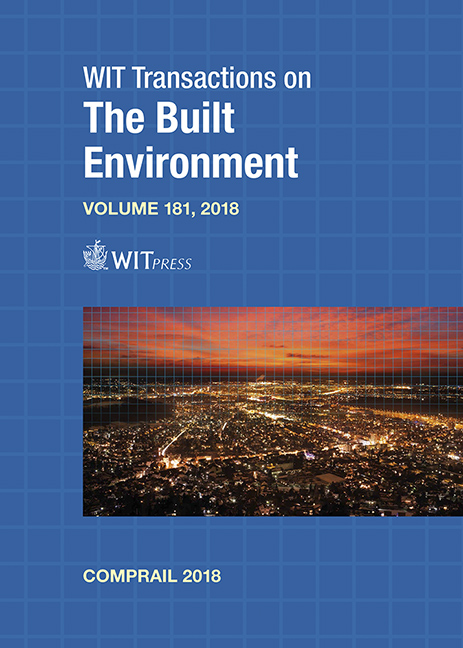RESERVATION-COMPULSORY COMMUTING RAILWAYS: INNOVATION THAT WILL BE MADE POSSIBLE BY UCRT/IPASS
Price
Free (open access)
Transaction
Volume
181
Pages
9
Page Range
225 - 233
Published
2018
Size
477 kb
Paper DOI
10.2495/CR180201
Copyright
WIT Press
Author(s)
RYO TAKAGI
Abstract
Making commuting railways “reservation-compulsory” is a quick method to realise “congestion-free” commute on those railways. This is a simple idea which have generally been rejected as unrealistic. However, the author believes that the advances in technologies recent years have seen is giving the idea a fresh chance to be realised. First, combining the moving block signalling systems and the ideas proposed by the authors to realise ultra-high-frequency train operation, a drastic improvement in capacity on already densely trafficked railway routes will become possible, giving railway operators the ability to provide a wide variety of services that, if properly selected by passengers, will better suit their individual needs. The ultra-high-frequency operation realised in the above way will result in train timetables that are really difficult to use. In addition, a slight imbalance in passenger loading across railway lines, trains or even coaches in a trainset may result in considerable destabilisation of operation. Here comes the need for implementing “compulsory reservation” policy or something close to that, giving the operator the ability to control passenger behaviour to a certain extent. The reservation policy will also give the operator the ability to provide sophisticated and individualised passenger guidance, as proposed by the author in his IPASS proposal. The complicated train timetables will become easy to use through the help of the high-performance individual passenger guidance function of IPASS. Fare collection will also be easy, giving operators the possibility to apply flexible fare structure while maximising passenger benefits. In the paper, the author describes in full detail the concept and possibility of reservation-compulsory commuting railways and reveal that this can be realised by the application of the group of ideas the author has proposed in recent years as part of his “UCRT/IPASS” concept.
Keywords
urban railways, ticketing, reservation, passenger guidance, high-frequency scheduling





